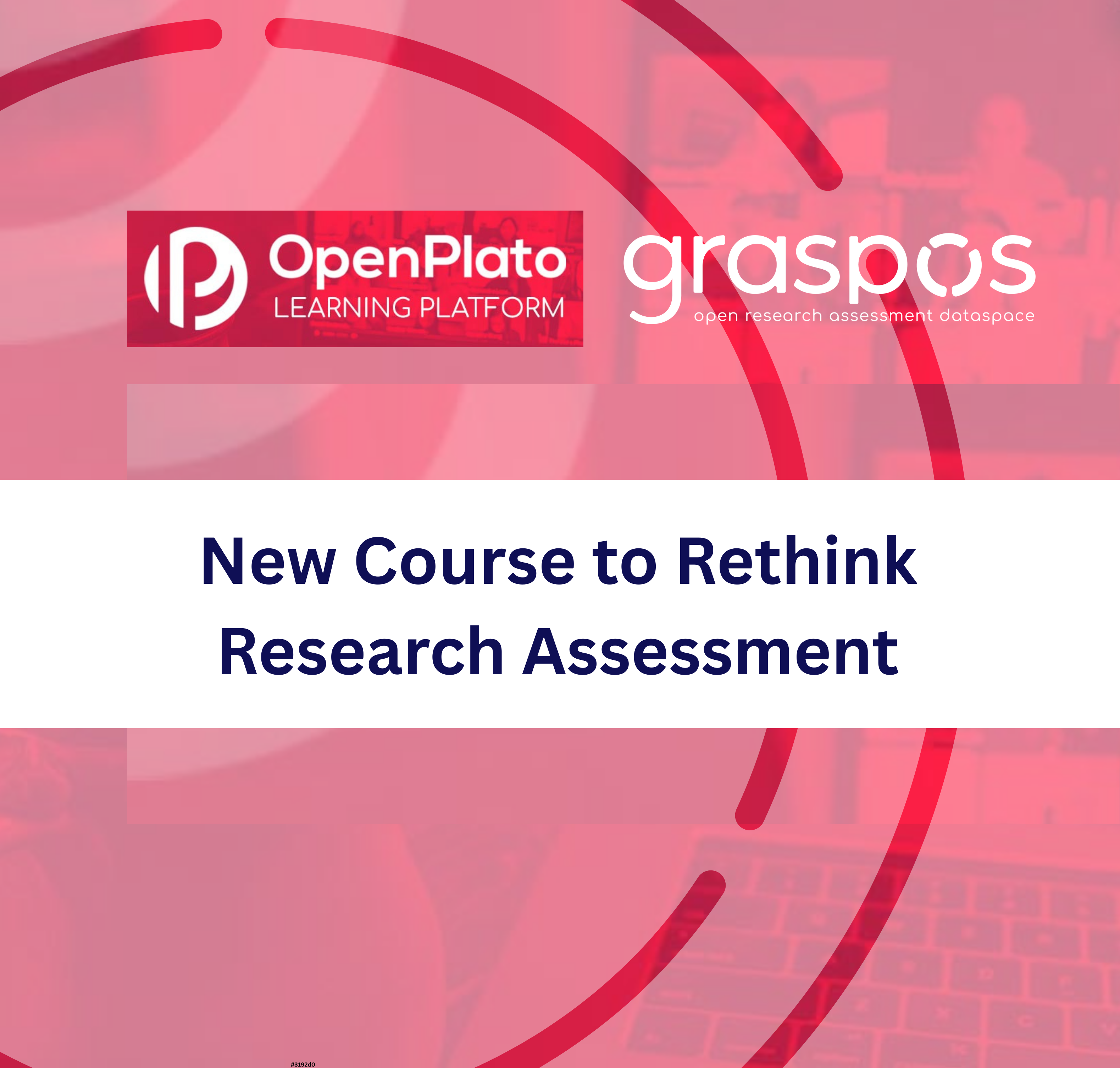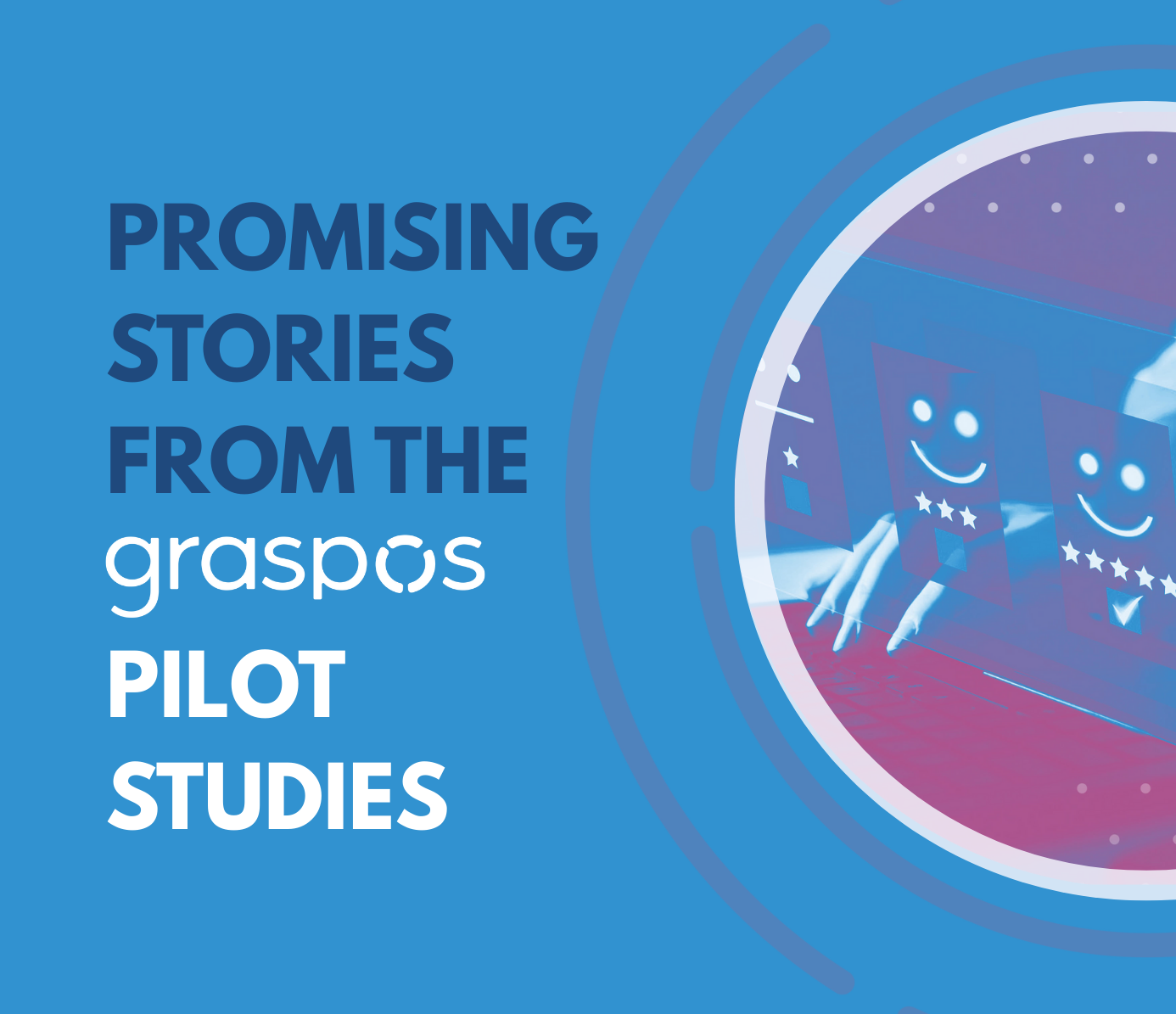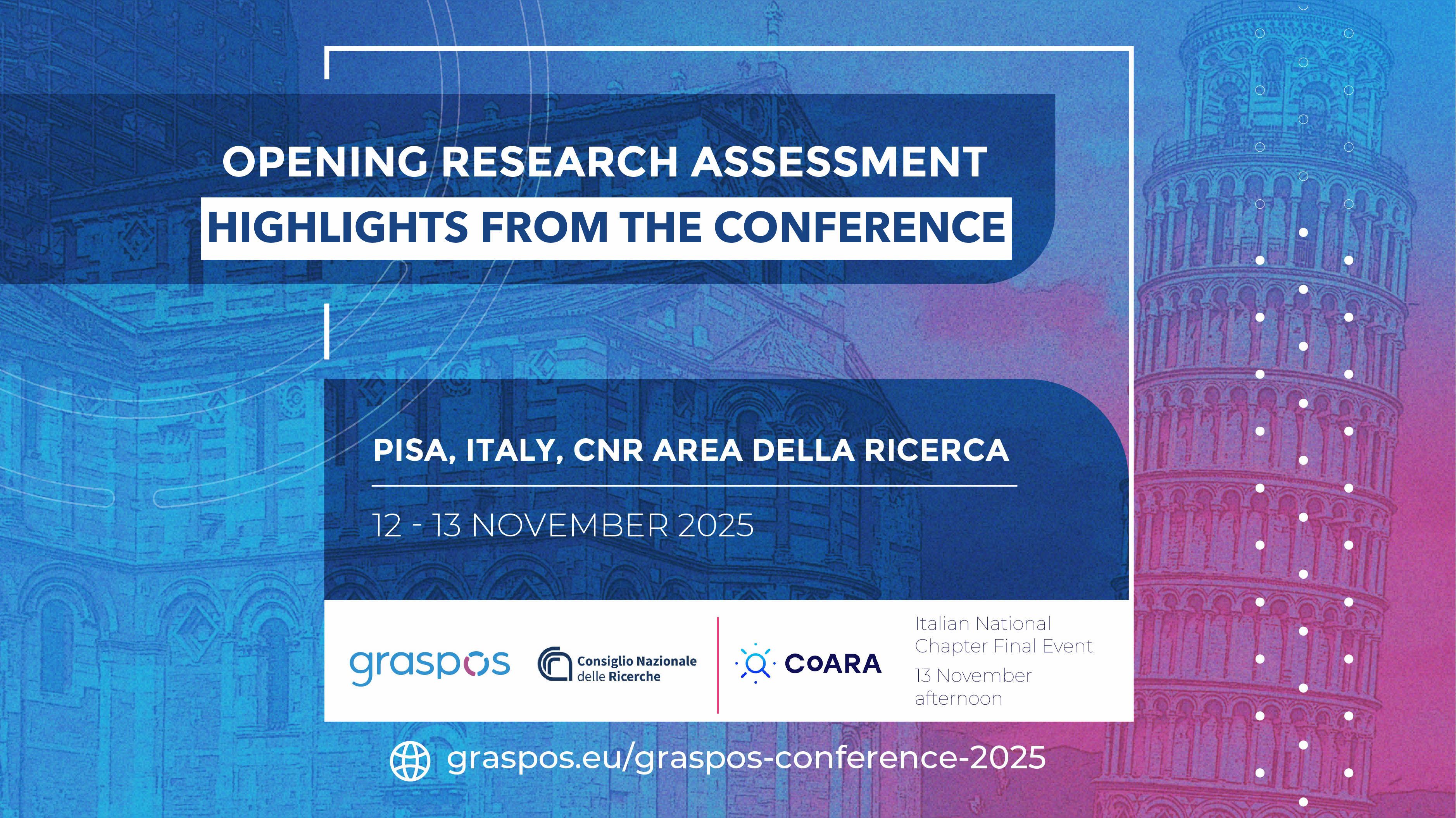Assessment criteria for the Social Sciences and Humanities
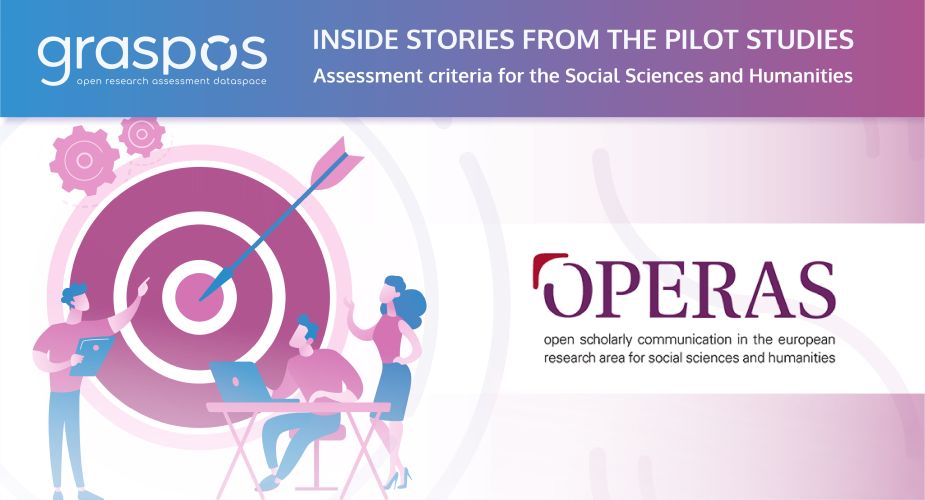
THE INSIDE STORIES PROVIDE INSIGHT INTO THE GRASPOS PILOT STUDIES, PRESENTING THE AIMS AND CURRENT STATUS OF THEIR ACTIVITIES. LEARN ABOUT WHAT THE PILOTS ARE UP AND HOW THEY AIM TO BRING OPEN SCIENCE AND RESEARCH ASSESSMENT TOGETHER.
This time, it is Fotis Mystakopoulos, Project Policy Officer at OPERAS AISBL, who answered our questions on the pilot focused on Assessment criteria for the Social Sciences and Humanities.
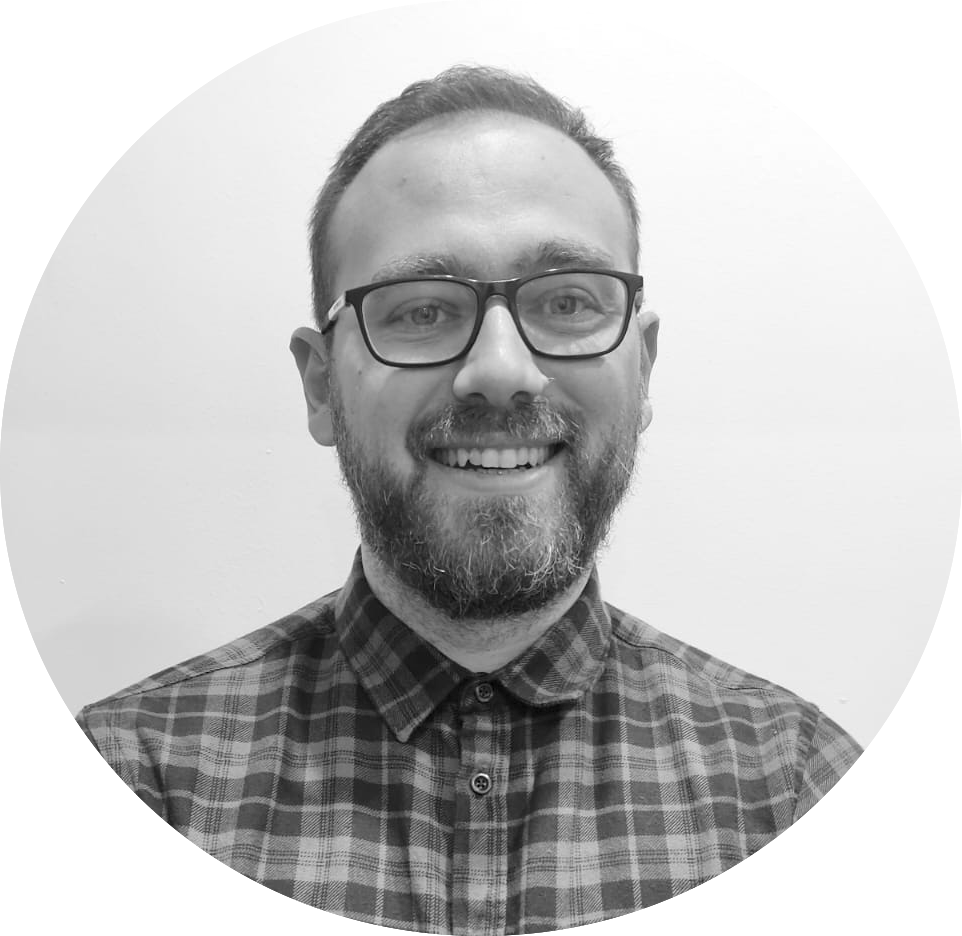
OPERAS AISBL is a non-profit organization that supports the OPERAS Research Infrastructure that coordinates and federates resources in Europe to address the scholarly communication needs of European researchers in the Social Sciences and Humanities.
Fotis, Can you tell us more about the Pilot you are working on ?
The OPERAS Pilot is a thematic pilot focusing on the challenges the Social Sciences and Humanities (SSH) are facing with regards, of course, to research assessment, especially considering the Open Access (OA) publishing perspective. The objective is to understand what criteria are relevant for research assessment in SSH, what digital platforms are currently in use, and how we can enrich this ecosystem. There are multiple contexts to consider, and we would like to specifically investigate the inclusion of monographs and further understand OA publishing models and what they can contribute to research assessment
how WILL THIS PILOT contribute to the co-development of an Open Science-aware Responsible Research assessment system FOR thematic disciplines, such as the social sciences and humanities?
It is well documented that SSH is one of areas that requires significant work on understanding and adapting research assessment practices to the needs of this thematic area. OPERAS is becoming established in the publishing landscape as the research infrastructure of choice. Our focus is the SSH, we have created a participatory governance structure where organisations and individuals ensure that the decision-making of OPERAS activities benefits SSH OA in general, which should enable us to bring further change to the wider sector. Through our expertise in publishing and services in development such as GoTriple, PRISM, Metrics and Diamond capacity hub, our involvement in the Open Access Book Usage Trust, we can bring a unique perspective from actors and services of the SSH field. Therefore, co-development is built in the way we operate, through the involvement of many actors in this thematic area.
Why do you think this study is important for the broader Open Science context?
Open Science encourages us to publish more than journal articles, and research assessment could incentivise further uptake of Open Science practices. Research assessment currently, as we understand it, is measured disproportionately by quantitative indicators that look at impact through hard numbers and citations primarily from journal publications. While it is not possible to move away from this model completely, the necessity is to bring into the conversation the qualitative perspective of measuring and evaluating research and researchers. Qualitative criteria should then be included in research assessment processes, which is not yet a reality.
How will this study contribute to the main aims of the project?
By presenting the challenges of SSH research assessment with our stakeholders and communicating the potential solutions for monitoring open science. It is important to identify the various tools at our disposal to enact change, and OPERAS will demonstrate a roadmap and potential solutions of using different indicators than the traditional ones of H-Index, and the big databases: SCOPUS and Web of Science. The purpose is to identify further data points and metrics to include in research assessment but also ways to assess those data.
Who are the main stakeholders involved, and why are they important within the Open Science and Responsible Research Assessment context of the pilot?
OPERAS is a Research Infrastructure with an extensive reach and established partnerships across the European Union. The governing structure of OPERAS involves organisations and individuals from 16 countries while our membership is even wider. From each country, we have national representatives that could reach out to various institutions locally and through participating in our executive assembly, or scientific advisory committee, we have a bi-directional flow of information. Another key actor is the Coalition for Advancing Research Assessment (CoARA). CoARA is coordinating the latest of a series of initiatives that want to implement Responsible Research Assessment (RRA) and as such it will coordinate many working groups, and national chapters and this increases the chances of embedding RRA practices in different contexts. At OPERAS we are involved in three of these working groups, investigating research assessment from different perspectives: multilingualism and language biases; recognizing and rewarding peer-review; and the working group that will engage with Open Infrastructures, which could be considered the closest link to GraspOS.
One last question about the OPERAS Pilot: What are some of the challenges you foresee and how do you plan to address them?
The biggest challenge is to get consensus on what constitutes a solution for SSH, and how do we differentiate the value of SSH research to the STEM disciplines. The challenges are clear:
-
- Monographs are important to SSH. So how do we measure impact compared to the traditional journals that are dominating research assessment at the moment?
- Multilingualism: how do we embrace the various linguistic traditions when a publication that is not in English may not receive the same attention as an output written in English?
- What does that mean for dissemination and impact, and how do we assess the quality, excellence, and impact of this output?
- How do we measure and how do we make space for this type of resource?
These are fundamental questions that guide our journey. I already suggested the variety of stakeholders and the range of backgrounds involved, could prove the biggest challenge to overcome, because of the situational differences for each stakeholder. One way to address this issue is through a consultation process via the pilot and identifying a common platform whereby we can agree at least in what is similar for researchers in different countries and contexts (method, epistemology), and produce a set of ground-rules to work with.
Thank you Fotis!

